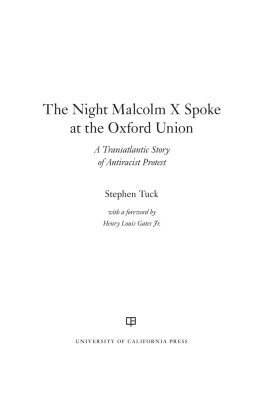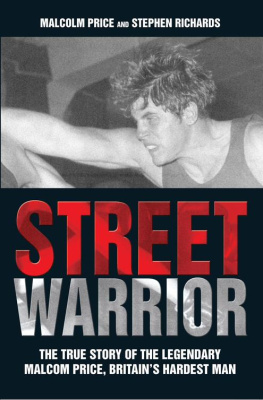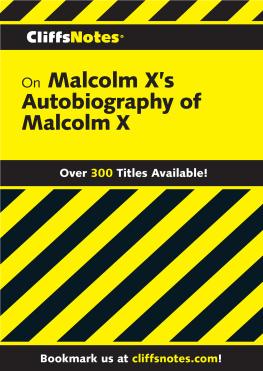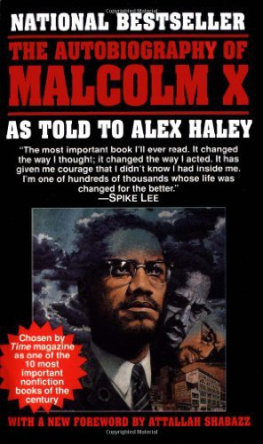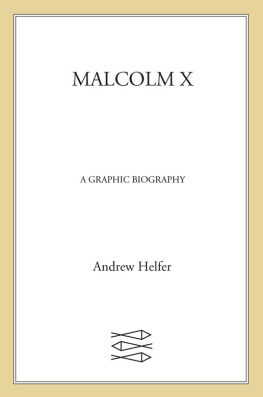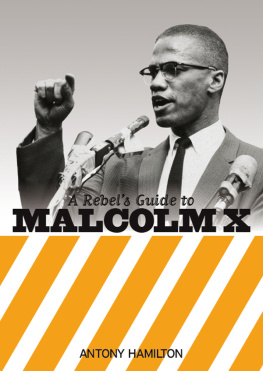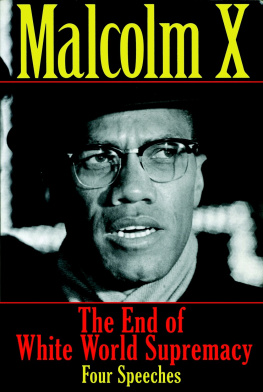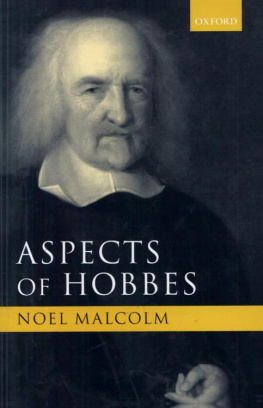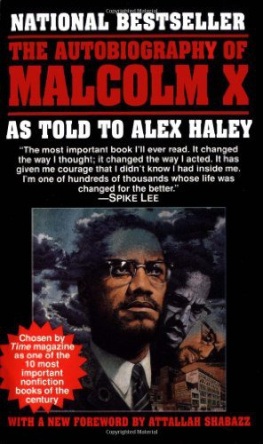Stephen Tuck - The night Malcolm X spoke at the Oxford Union : a transatlantic story of antiracist protest
Here you can read online Stephen Tuck - The night Malcolm X spoke at the Oxford Union : a transatlantic story of antiracist protest full text of the book (entire story) in english for free. Download pdf and epub, get meaning, cover and reviews about this ebook. City: Array, England--Oxford, year: 2014, publisher: University of California Press, genre: Detective and thriller. Description of the work, (preface) as well as reviews are available. Best literature library LitArk.com created for fans of good reading and offers a wide selection of genres:
Romance novel
Science fiction
Adventure
Detective
Science
History
Home and family
Prose
Art
Politics
Computer
Non-fiction
Religion
Business
Children
Humor
Choose a favorite category and find really read worthwhile books. Enjoy immersion in the world of imagination, feel the emotions of the characters or learn something new for yourself, make an fascinating discovery.
- Book:The night Malcolm X spoke at the Oxford Union : a transatlantic story of antiracist protest
- Author:
- Publisher:University of California Press
- Genre:
- Year:2014
- City:Array, England--Oxford
- Rating:5 / 5
- Favourites:Add to favourites
- Your mark:
The night Malcolm X spoke at the Oxford Union : a transatlantic story of antiracist protest: summary, description and annotation
We offer to read an annotation, description, summary or preface (depends on what the author of the book "The night Malcolm X spoke at the Oxford Union : a transatlantic story of antiracist protest" wrote himself). If you haven't found the necessary information about the book — write in the comments, we will try to find it.
Stephen Tuck tells the human story behind the debate and also uses it as a starting point to discuss larger issues of Black Power, the end of empire, British race relations, immigration, and student rights. Coinciding with a student-led campaign against segregated housing, the visit enabled Malcolm X to make connections with radical students from the Caribbean, Africa, and South Asia, giving him a new perspective on the global struggle for racial equality, and in turn, radicalizing a new generation of British activists. Masterfully tracing the reverberations on both sides of the Atlantic, Tuck chronicles how the personal transformation of the dynamic American leader played out on the international stage.
Stephen Tuck: author's other books
Who wrote The night Malcolm X spoke at the Oxford Union : a transatlantic story of antiracist protest? Find out the surname, the name of the author of the book and a list of all author's works by series.

